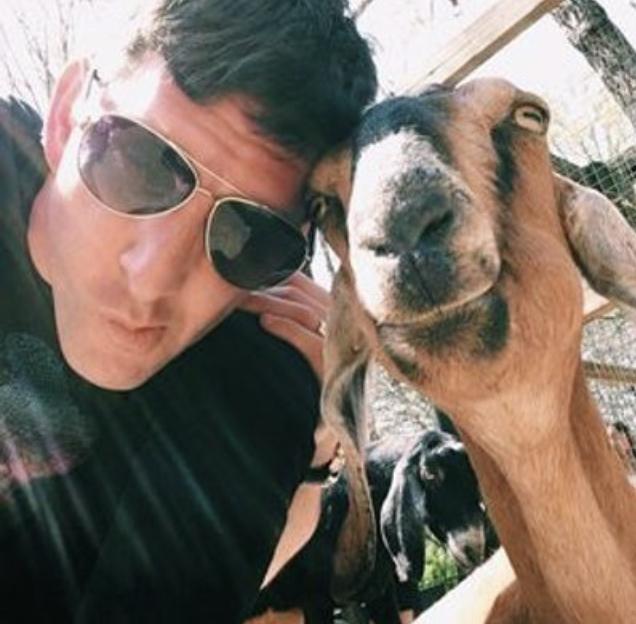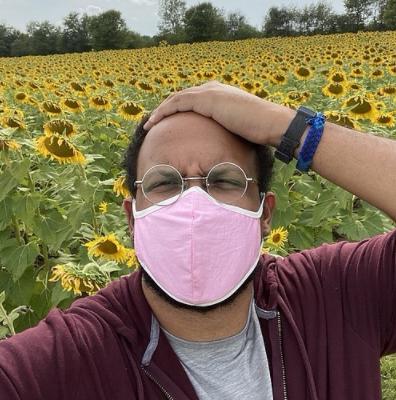Daniel Groll, Associate Professor of Philosophy
One of my very favorite books is “There’s a Boy in the Girls’ Bathroom” by Louis Sachar. Sachar is more famous for “Sideways Stories from Wayside School” (which I also adore) and “Holes,” but “There’s a Boy in the Girl’s Bathroom” has stayed with me since I read it as a kid. It’s about a boy—Bradley Chalkers—who has all kinds of behavioral issues and his struggles to get along with other people. Sachar does a great job of subtly pointing to difficulties in Bradley’s homelife and showing that, oftentimes, people who are “difficult” are hurting inside. The way that Sachar depicts parts of Bradley’s interior life is very simple and affecting. Geez, now I want to go read it again.


Liz Raleigh, Associate Professor of Sociology, Chair of Sociology and Anthropology
Certain books have spoken to me at different times. “The Color Purple” is a masterpiece that I loved reading in college, but—rightfully so—the discourse surrounding it continues to evolve. Books are like food to me. Sometimes I want something substantial and I read for my field. Other times I want fluff, and I read David Baldacci. If you want to know what I am reading now, I could say: during the pandemic, I have enjoyed reading “Pride and Prejudice” with my 12-year-old daughter. It is the ultimate soap opera. Since the story has spurred so many retellings, we’ve been reading through those one by one. We recently read “Longbourn”, “Eligible”, and are now reading “The Other Bennet Sister.”
Susannah Ottoway, Laird Bell Professor of History
“Gaudy Night” by Dorothy Sayers: I love it because it’s a beautifully written mystery. You care every step of the way “whodunit” and why. I love it because it tracks the hopeless, helpless love of two complicated, problematic, brilliant people who solve each other as they solve the case. And I love it because reading it brings me back to the time that I was doing dissertation research in the North of England. I was pretty much down to my last dime, so was staying in Leeds University’s dorms while researching in an insanely disorganized library. The dormitory didn’t supply blankets or sheets; I was sleeping on a bare bed during a massive heatwave and water shortages. People in Leeds were asked not to bathe to save water. I was filthy, exhausted, and parched, but I found “Gaudy Night” in a Leeds Oxfam shop, and it was magic.


Claudia Lange, Visiting Instructor in Spanish
There are no easy answers for the question about my favorite books. For me, books are always life companions, because their words accompany me and are always present. They can also be the refuge in desperate hours and during times of trouble and uncertainties. Other times they offer words that resonate within me or words that challenge me, or they speak about things that I cannot articulate in my mind and heart. In the ups and downs of the routine and the changes that we have in life, books are always loyal friends to have close. Some of my favorites that I usually go back to and reread are:
“El Puente (The Bridge)” and “Dos veces (Two Times)” by Circe Maia (1932) are two books of poetry and I am including them because I find the magic of deep and simple saying, of measured reflection and the awareness of what lies beneath.
“Estravagario” by Pablo Neruda (1904 – 1973), a book of poetry that I had loved since I was a teenager.
Eddie O’Byrn, Cowling Postdoctoral Fellow in Philosophy
Fyodor Dostoevsky’s “The Brothers Karamazov” is one of my favorite books! My first time through the story was listening to it as an audiobook during a road trip! Although I often read philosophical non-fiction, this book is beloved by many philosophers I’ve studied and Black American writers that I admire. Dostoevsky presents a captivating story of family, individuality, murder, faith, atheism, freedom, serfdom, and much more. In this over-800-page epic, the reader is transported to a Russian landscape populated with seemingly familiar characters who are both heroic and despicable. One of my favorite aspects of the novel is the exploration of philosophical themes like Justice through the disputes and trials of the characters. A must read for anyone interested in Russian history/culture and a philosophically generative text! If you decide to pick it up, I hope your experience with it is as good as my own!










